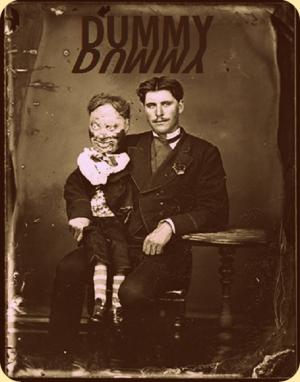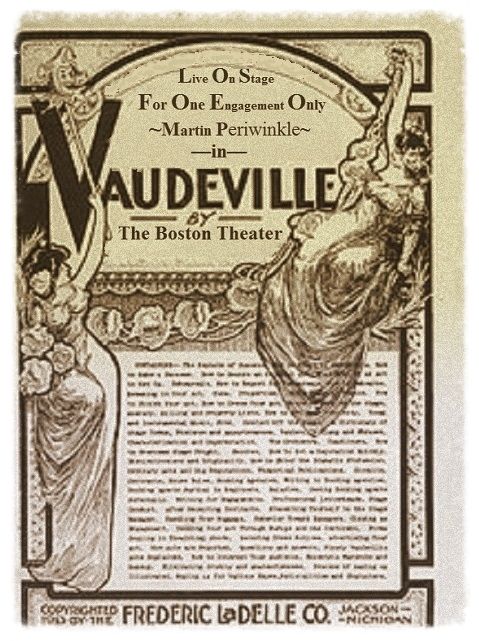| Horror and Thriller Poetry posted April 22, 2014 |
      |
Martin Priwinkle was certainly no dummy...
Dummy
by Dean Kuch
100 Word Horror Contest Winner
|
|
Writing Prompt The challenge is to write a poem that contains some form of horror or thriller. No more than 100 words. |

100 Word Horror Contest Winner |
 Recognized |
**98 words**
Originally, ventriloquism was a religious practice. The name comes from the Latin for to speak from the stomach, i.e. venter (belly). The Greeks called this gastromancy. The noises produced by the stomach were thought to be the voices of departed spirits, who took up residence in the stomach of the ventriloquist. The ventriloquist would then interpret the sounds, as they were thought to be able to speak to the dead, as well as foretell the future. One of the earliest recorded group of prophets to utilize this technique was the Pythia, the priestess at the temple of Apollo in Delphi, who acted as the conduit for the Delphic Oracle.
In nearly every movie concerning ventriloquists, they are portrayed as schizophrenic, nefarious creeps with serious social problems. Where does this stereotype come from? The art itself goes back to necromancers, who would pretend to act as speakers for the dead for grieving family members who could pay up front. Many believed that ventriloquists were in league with the Devil and in the 18th century there was a formal scientific investigation in France to investigate how ventriloquism actually worked. After the alleged unholy alliance of ventriloquists was debunked, the art flourished throughout Europe and the U.S. from vaudeville to packed theaters.
The creepiest of all creepy mannequins are of course the ones that look like children. Why else would there be dozens of horror flicks with deranged ventriloquist's dummies, deranged dolls, and maniacal mannequins? We can in part thank Don Mancini and his cult-favorite Child's Play series for making us perpetually look over our shoulders for children of the devil.
Thanks for reading. Pleasant screams...
Pays
one point
and 2 member cents. Originally, ventriloquism was a religious practice. The name comes from the Latin for to speak from the stomach, i.e. venter (belly). The Greeks called this gastromancy. The noises produced by the stomach were thought to be the voices of departed spirits, who took up residence in the stomach of the ventriloquist. The ventriloquist would then interpret the sounds, as they were thought to be able to speak to the dead, as well as foretell the future. One of the earliest recorded group of prophets to utilize this technique was the Pythia, the priestess at the temple of Apollo in Delphi, who acted as the conduit for the Delphic Oracle.
In nearly every movie concerning ventriloquists, they are portrayed as schizophrenic, nefarious creeps with serious social problems. Where does this stereotype come from? The art itself goes back to necromancers, who would pretend to act as speakers for the dead for grieving family members who could pay up front. Many believed that ventriloquists were in league with the Devil and in the 18th century there was a formal scientific investigation in France to investigate how ventriloquism actually worked. After the alleged unholy alliance of ventriloquists was debunked, the art flourished throughout Europe and the U.S. from vaudeville to packed theaters.
The creepiest of all creepy mannequins are of course the ones that look like children. Why else would there be dozens of horror flicks with deranged ventriloquist's dummies, deranged dolls, and maniacal mannequins? We can in part thank Don Mancini and his cult-favorite Child's Play series for making us perpetually look over our shoulders for children of the devil.
Thanks for reading. Pleasant screams...

You need to login or register to write reviews. It's quick! We only ask four questions to new members.
© Copyright 2024. Dean Kuch All rights reserved. Registered copyright with FanStory.

Dean Kuch has granted FanStory.com, its affiliates and its syndicates non-exclusive rights to display this work.



